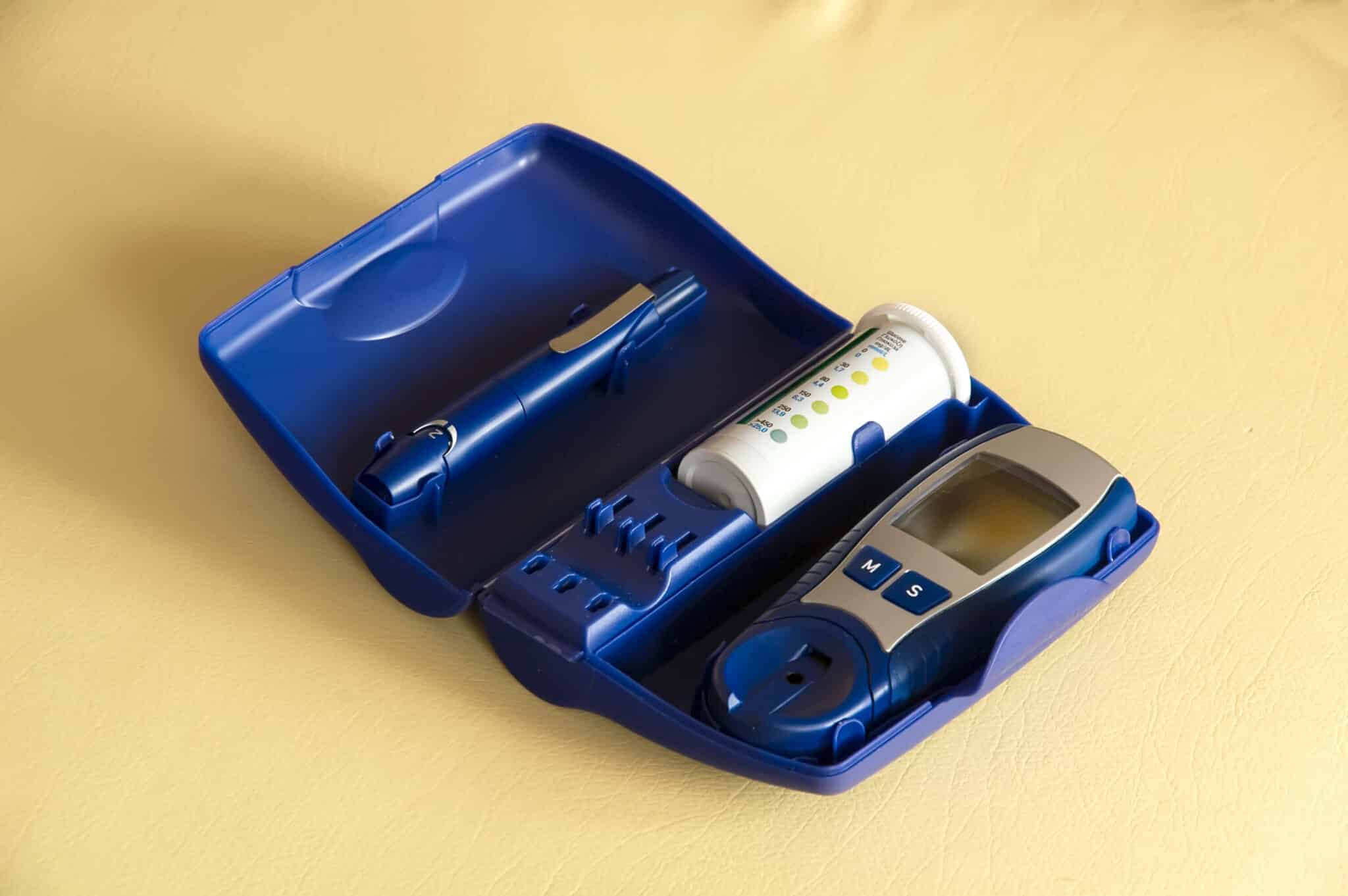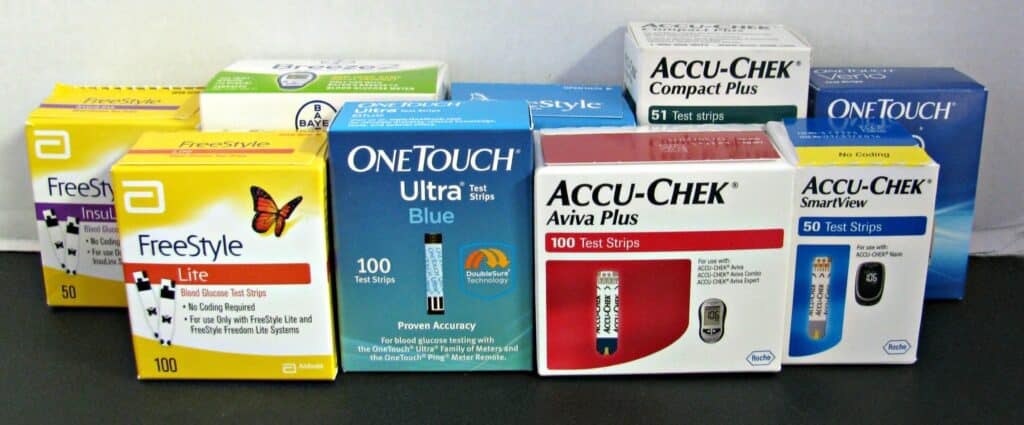
How Selling Extra Diabetic Test Strips Can Help You Save Money
Posted on July 18, 2025 at 08AM
Reselling Diabetic Supplies Creates Cash and Cuts Costs
Selling unused diabetic test strips is a growing trend in the resale market, offering a practical, legal, and cost-effective way for individuals to earn extra cash, generate revenue, and make a profit while reducing waste. For many people managing blood sugar levels, surplus boxes of test strips often accumulate—sometimes due to changes in their treatment plan, switching to a different brand like Accu-Chek or Dexcom, or a shift from private insurance to Medicare. Instead of letting these supplies expire or go unused, selling them creates an opportunity to trade for funds, access discount options, and offer others a bargain compared to full price. This not only highlights the difference between retail and resale channels but also provides an innovative, thrifty solution that benefits both sellers and buyers alike.
Growing Surplus of Diabetic Supplies Creates an Opportunity
Millions of individuals living with type 1 or type 2 diabetes manage their condition with daily monitoring using test strips, lancets, glucose meters, and other essential diabetes supplies. For various reasons, excess boxes often accumulate, whether due to changes in insurance, hospital discharges, or adjustments in prescriptions. Some patients switch brands or devices, such as transitioning from traditional meters to sensors like Dexcom or using continuous glucose monitors that work in conjunction with insulin therapy. These changes can leave sealed test strip packages unused. According to current research, the number of surplus supplies is steadily increasing, prompting more people to explore ways to turn extra strips into a sale. With the right place and accurate content, this process can be both efficient and beneficial.
These circumstances have created a growing secondary market for diabetic supplies, including blood glucose test strips and related items. A person with extra, unopened boxes now has options to sell them through verified platforms or a trusted site that connects them with buyers who need them. Whether the source is a surplus from a prior prescription or a change in suppliers, the opportunity is now at hand. With rising healthcare costs making headlines in the news, selling extra supplies becomes a financially savvy move. This experience not only allows sellers to earn payments but also helps others gain access to affordable resources, regardless of name, brand, or prescription status.
The Financial and Practical Benefits of Selling Test Strips
Selling unused test strips offers multiple benefits beyond simple income:
- Affordability for buyers: Individuals without insurance coverage, or those with limited access through Medicaid, may struggle to afford retail prices for supplies. Your unused products can provide a low-cost option.
- Savings for sellers: Rather than wasting unused strips, you can turn them into money for other expenses, reducing financial strain.
- Thrift and reduced waste: Unused, unexpired supplies are kept out of landfills and used where they’re needed most.
- Earnings for families: Family members of deceased or recovered diabetics often have unopened boxes and no use for them—selling offers a meaningful way to recoup some costs.
Whether you’re trying to improve your budget, save for medications or health expenses, or simply reduce expenses, the resale market for test strips offers a legitimate and cost-effective solution, something that can make a real difference when everything else feels financially overwhelming.
Understanding the Legality and Regulations
Contrary to common misconceptions, selling test strips is legal in the United States, subject to specific essential guidelines and restrictions. You can sell:
- Unopened, unexpired boxes
- Not labeled “Medicare/Medicaid only”
- Not received via government or insurance programs
The American Diabetes Association emphasizes the importance of consistent diabetes care, and that’s where the law draws the line. Selling test strips provided under Medicare or Medicaid is illegal, but privately purchased ones are legal to sell.
Understanding these regulations is critical. Legitimate companies that purchase test strips will verify these factors before offering payment, and they often provide prepaid shipping labels, trackable transactions, and transparent requirements for accepted brands, quantities, and conditions.
Reliable Platforms and How the Process Works
Many reputable companies and sites specialize in buying test strips. Examples include dedicated resale platforms or Craigslist, although the latter involves higher risks.
Most professional buyers offer:
- A clear list of accepted brands (like Accu-Chek, Dexcom, OneTouch)
- Specific pricing based on brand, box size, and shelf life
- Free shipping kits and return labels
- Fast payouts via PayPal, check, or direct deposit
Here’s a simple guide to how the process works:
- Check your supplies for eligibility.
- Visit a reliable platform and request a quote.
- Receive and fill out the shipping label.
- Package and send your items.
- Receive payment within a few days.
Always review the platform’s reviews and reliability, and avoid scams by sticking to verified websites.
The Most In-Demand Diabetic Test Strips Today
Some brands and types have higher demand in the resale market due to broader insurance restrictions or limited access in certain areas. Popular items include:
- OneTouch Ultra Blue
- Accu-Chek Guide
- Freestyle Lite
- Contour Next
- Dexcom sensors (in some cases, though resale rules may vary)
Keep in mind that damage, missing seals, or opened boxes can reduce or eliminate your item’s resale value. Most buyers will not accept test strips that are close to expiration or not in their original packaging.
Purchased by Budget-Conscious Diabetics
People who purchase from the secondary market come from various backgrounds:
- Uninsured individuals who cannot afford retail prices
- Those in the donut hole of Medicare or waiting for insurance approval
- Caregivers and family members supporting someone with diabetes
- Low-income or at-risk diabetics needing immediate access
Buying discounted strips offers a safe and accessible option, improving diabetes management for individuals struggling with costs, supply shortages, or gaps in insurance coverage.
This demand is particularly high among the type 2 diabetes community, where daily monitoring is essential and often under-supported.
Pricing and Factors That Influence Payouts
The amount you receive depends on:
- Brand and type
- Box condition (unopened, sealed)
- Shelf life (expiration date at least 6–12 months out)
- Quantity sold in bulk
- The platform or company offering the transaction
Some companies offer discounts for bulk sales, while others specialize in specific brands. Compare prices and check for hidden fees or additional shipping costs before committing.
For example, a sealed 100-count box of OneTouch Ultra Blue may yield between $20 and $40, depending on the platform, whereas a Dexcom sensor may command even higher earnings.
Avoiding Scams and Staying Safe

Residents of Carson, California can turn unused diabetic test strips into real savings with help from More Cash for Test Strips
Unfortunately, the popularity of selling diabetic supplies has attracted some fraudulent platforms or dishonest buyers. Protect yourself with these tips:
- Use only verified companies with strong reviews
- Never pay upfront fees
- Avoid deals requiring cash transfers with no insurance
- Don’t ship without a prepaid, trackable label
- Verify requirements and laws in your location
Always keep documentation of the transaction, and be cautious of listings on Craigslist or similar platforms, where scams are more common.
Resale as a Part of Financial and Health Planning
Selling unused diabetic supplies can be part of broader financial planning. The income may not replace a full-time job, but it can:
- Offset expenses related to medications, prescriptions, or diet
- Supplement your monthly budget
- Help during job loss or financial difficulty
- Support a family member in need
This cost-effective option, offered by More Cash for Test Strips, also empowers people to manage their resources and reduce waste actively, supporting both the economy and individuals with pressing needs.
Community, Support, and Ethical Considerations
There are legitimate questions about whether selling strips is an ethically sound practice. It’s worth remembering:
- You’re helping others who face barriers to access
- You’re minimizing waste from expired supplies
- You’re participating in a resource exchange that supports the diabetic community
Engage in this process with mind and purpose. If you’re uncertain, consult a doctor or check with your pharmacy to determine if your strips are eligible for resale.
Some organizations even accept donations of supplies for nonprofits that serve underinsured or underserved patients—another meaningful way to make a contribution.
Final Thoughts: A Cost-Effective, Legal Way to Earn and Help Others
Selling extra diabetic test strips is a legitimate, regulated, and meaningful way to earn money, support people with diabetes, and reduce waste. With proper understanding of the regulations, awareness of buyer requirements, and use of trusted platforms, you can turn a surplus of test strips into a valuable opportunity.
This process offers cash in your pocket, savings on future supplies, and real help for someone managing a serious condition. Whether you’re looking to make a little extra income, support a family member, or give your unused supplies a second life, the resale of diabetic test strips is an increasingly relevant part of today’s healthcare and financial ecosystems.
Frequently Asked Questions
1. Can I sell diabetic test strips internationally?
No, most platforms and buyers only allow transactions within the U.S. due to customs regulations, healthcare laws, and international shipping restrictions.
2. What happens if my test strips are close to expiring?
Test strips typically need at least 6–12 months of shelf life to be accepted. Boxes near expiration may be rejected or offered a significantly lower price.
3. Are there limits on how many boxes I can sell?
While most platforms allow you to sell multiple boxes, some have limits per transaction or month, especially for bulk quantities. Check the platform’s policy.
4. What if my strips were prescribed, but I didn’t pay out of pocket?
If your strips were provided through Medicare, Medicaid, or insurance plans, selling them is illegal—even if you didn’t use them.
5. Do I need to create an account to sell test strips online?
Some platforms require account creation for order tracking and secure payment. Others allow one-time sales with basic contact and shipping info.
6. What kind of packaging is required to ship test strips?
Most buyers require that test strips be shipped in sturdy boxes, not envelopes, and securely sealed to prevent damage during transit. Some provide prepaid shipping kits.
7. Can I return or get my strips back if they’re not accepted?
Policies vary—some platforms discard unaccepted strips, while others return them upon request. Be sure to review return policies before shipping.
8. How is my personal information handled when selling?
Reputable platforms use secure systems and privacy policies to protect your data. Avoid any site that doesn’t have clear contact info or data handling terms.
9. Can I sell other diabetic supplies like lancets or meters?
Yes, many buyers also accept unopened lancets, glucose meters, or sensors—but pricing and acceptance criteria vary by item and brand.
10. Is there a difference in payout based on location?
Yes, shipping costs, demand, and platform availability may affect payouts. Some states may also have additional regulations that impact resale options.

